
Fitch sensed Whitmore’s XK-120 could perform significantly better than its factory configuration permitted. He set out to convert it to a “special” that would handle better, weigh less and have more power. The resulting Fitch-Whitmore Le Mans Special, cloaked in a new racing body, weighed in at 2100 lbs.—800 lbs. less than the stock Jaguar.
The subtly sculpted body was a tour de force of hand-beaten aluminum, crafted by Andy Salada at Fitch’s Sports & Utility Motors in White Plains N.Y. Even the hood louvers were hand-formed. The windshield frame was cast aluminum, as was the grid-type grille, behind which the car’s headlamps were mounted.
A set of Rudge-Whitworth spoke wheels, made by Borrani, enhanced stability by adding two inches to the track; while large Alfin finned brakes provided stopping power. Chassis tuning included resetting the front torsion bars to compensate for the car’s reduced weight, while the rear springs were recontoured to lower the car. The 3.4L DOHC Jaguar engine received a more aggressive camshaft.
Whitmore originally envisioned the Special to be a Le Mans contender, but as the project proceeded, it became apparent the car was better suited for American road-course racing—which was just then exploding in popularity. So, the Fitch-Whitmore Special’s first appearance—with its aluminum body still au naturel —was at Bridgehampton in May 1951. Fitch deftly steered the car to a class win, placing fourth overall.



Shortly after the Bridgehampton victory, Briggs Cunningham invited Fitch to drive a Cunningham C2 at Le Mans, beginning a long and extremely productive racing relationship between the two men. Even so, Fitch ran the Special again at Bridgehampton in 1952, finishing third overall; later that year, the car was sold.
By 1955, a large American V8 had been stuffed into the car, throwing it severely out of balance and ending its days as a viable racer. Thankfully, the Fitch-Whitmore Special would eventually come to the attention of prominent collectors who appreciated its significance and ensured its survival. The car passed from the Joel Finn collection to the current owner in 1990. Vintage Racing Services, Inc. was then retained to restore the car to its original John Fitch design configuration, completing it in 1991. Sasco Motorports rebuilt the restored racecar’s 3.4L Jaguar DOHC engine.



A 2002 Vintage Motorsport article calls the Fitch-Whitmore LeMans Special, “…one of the very finest early American pure road racers,” while also commending it as, “…one of the breakthrough examples of early-American road-racing innovation.”
The Fitch-Whitmore car’s next owner will have the privilege of writing the next chapter in the saga of this important, well-documented and absolutely unique automotive artifact from the dawning years of American road-course racing.
This 1952 Fitch-Whitmore Le Mans Special sold for $403,000 at Bonhams’ Greenwich Concours d’Elegance auction held June 7th, 2009 at Roger Sherman Baldwin Park in Greenwich, Connecticut. Its pre-sale estimate was $290,000 – $325,000.
[Source: Bonhams]


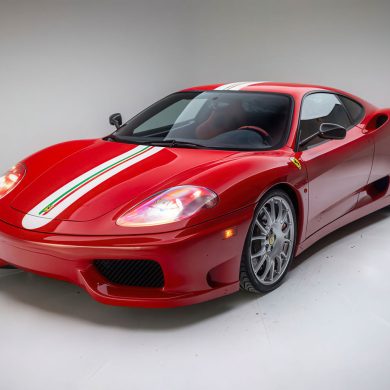
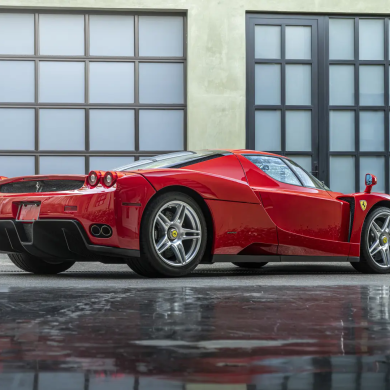
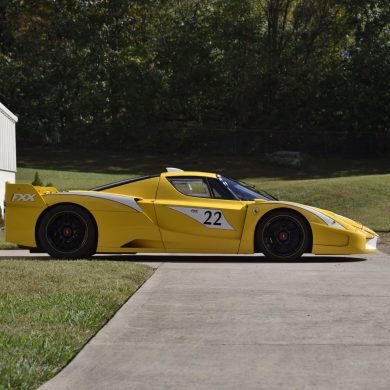
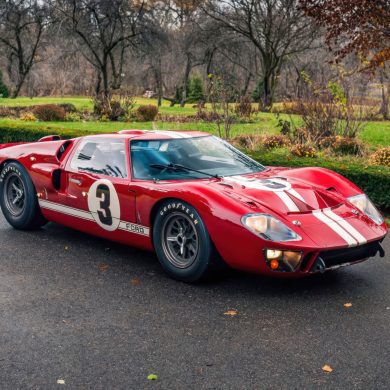
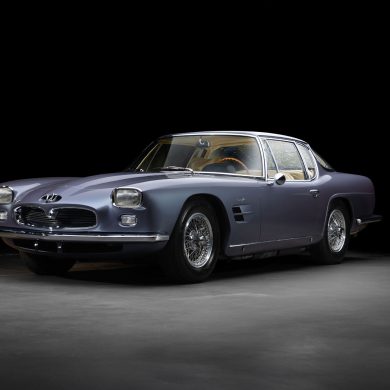


I was very pleased to learn that my Uncle Coby’s LeMans Special was successfully auctioned to a collector and automotive history buff. I remember seeing the car in my youth in Lime Rock Connecticut with Coby and John Fitch. Please take good care of her. Bill Whitmore – Hillsborough NC
My Dad, Bud Schumann, was a contemporary of Coby Whitmore’s working with him as an illustrastor in Dayton and Chicago commercial art studios. He drove the Fitch-Whitmore Special to our home in Oakwood ( a Dayton suburb) in 1951 or 2 when I was in high school. He knew I was a budding car buff with an MG-TC. It was so low we had to lift the front end to get into the driveway. A story about the silver-blue metallic paint job, it’s original color ,was the paint shop had a problem with the hood paint, an apprentice poured paint remover on the hood and lit it (a procedure then), the hood disappeared into a puddle of molten aluminum. The cost of the hood replacement was equal to the paint job. Good seeing it again.
Seeing this article prompted me to get into the box of photos and come up with 20 snapshots of the Fitch-Whitmore Special, Coby Whitmore along with my Dad, his business associates and myself examining the car in our driveway in Oakwood,Dayton, Ohio ~ 1952. The car was painted originally in the silver-blue Jaguar color and had nerf bars for bumpers front and rear.
dear sir,
I would love to see some scans of the pics you refer to, if possible could you email them to me at [email protected]
thanks terry
Australia
Seeing this article prompted me to get into the box of photos and come up with 20 snapshots of the Fitch-Whitmore Special, Coby Whitmore along with my Dad, his business associates and myself examining the car in our driveway in Oakwood,Dayton, Ohio ~ 1952. The car was painted originally in the silver-blue Jaguar color and had nerf bars for bumpers front and rear.
Robert;
I would also love to see any scans you may have of those snapshots.
Tom Whitmore
whit @ whit.nu
remove the spaces to use the e mail address.
Robert, the car is now in our collection after purchasing it at RM’s Amelia Island auction. If possible, can you email me copies of the pictures you have? [email protected] . Thank you so much!
Guys –
Thanks to you both for sharing your stories. What a very special and your stories were as well.
Thanks again,
SCD